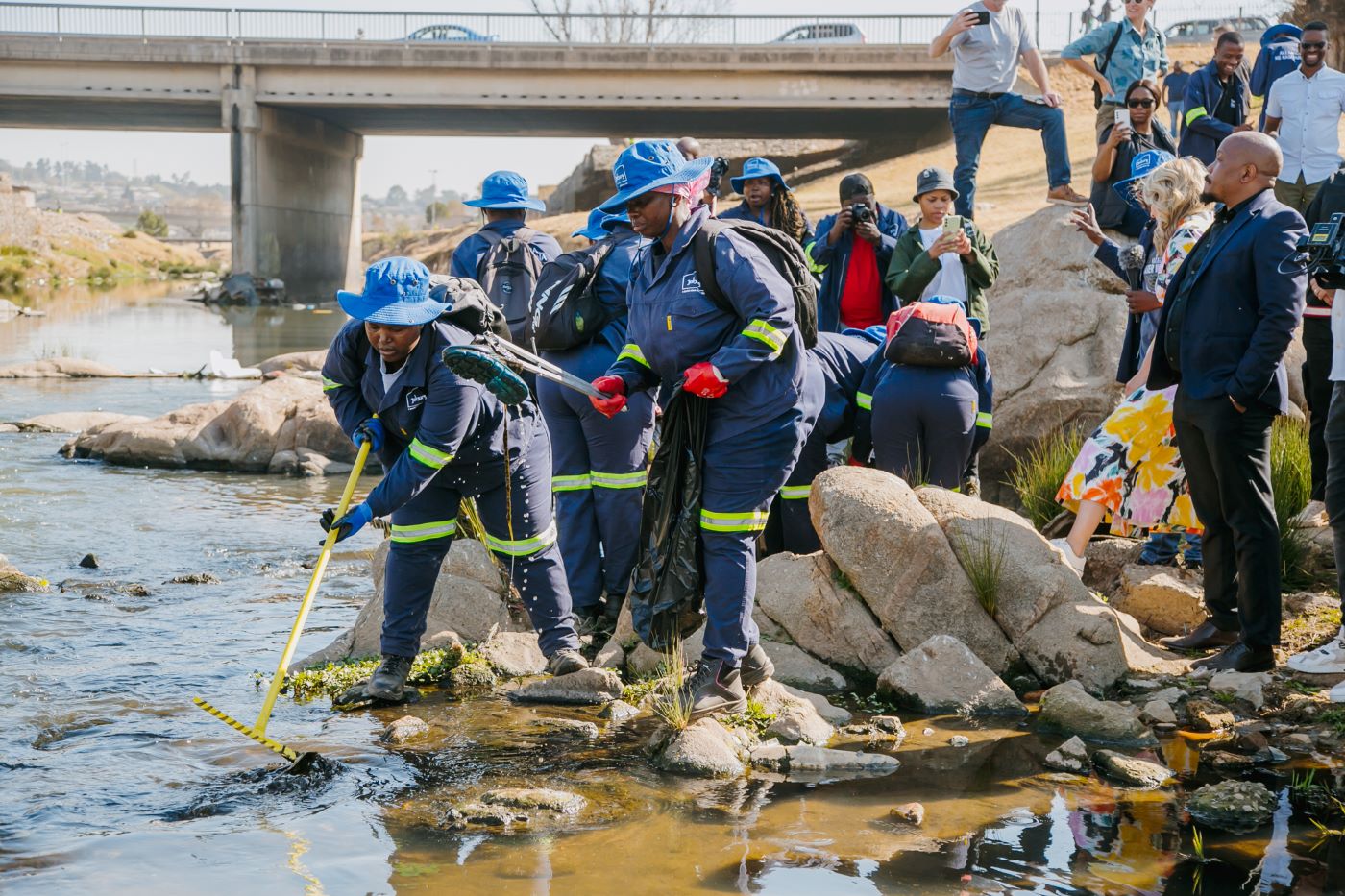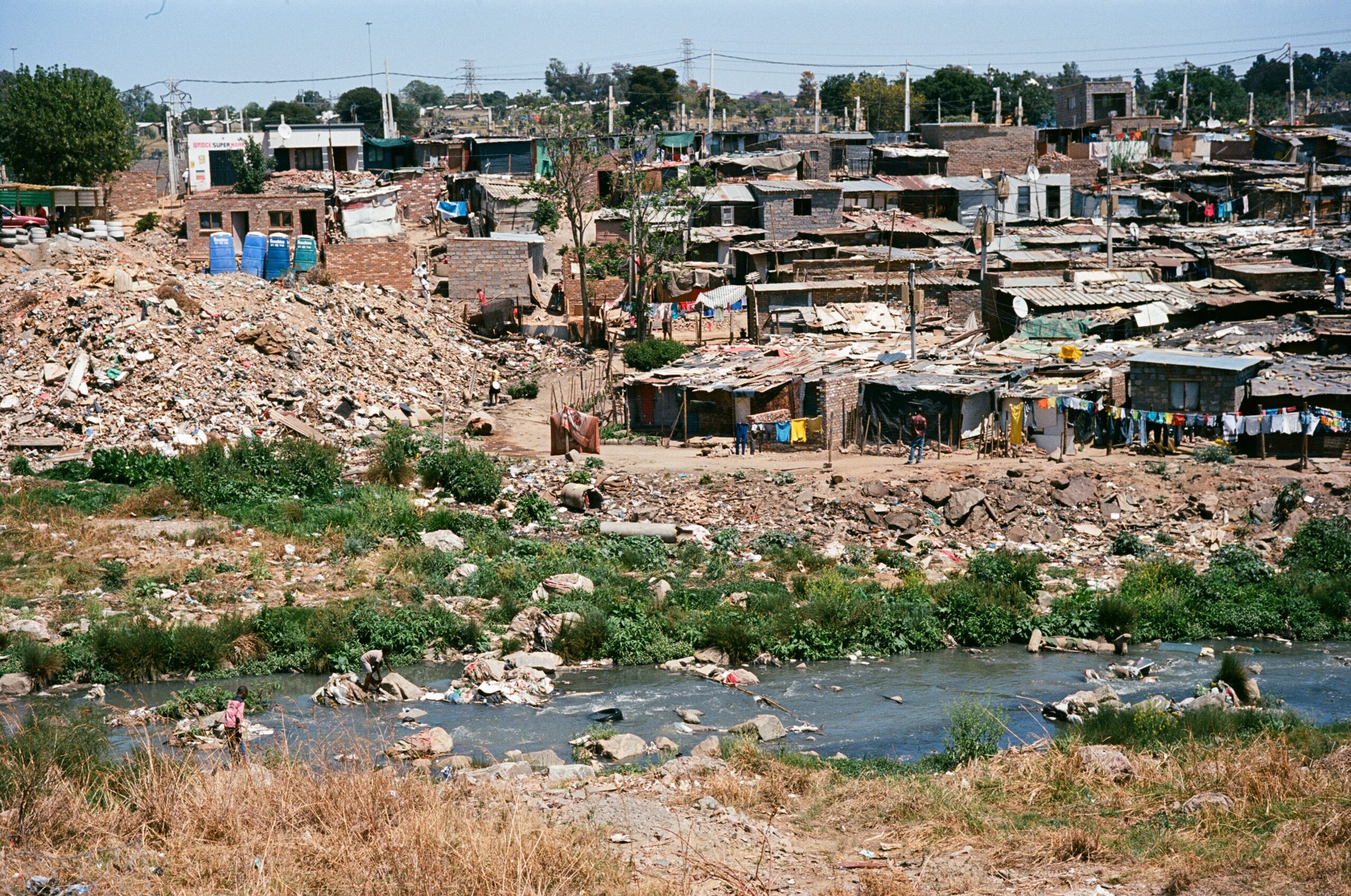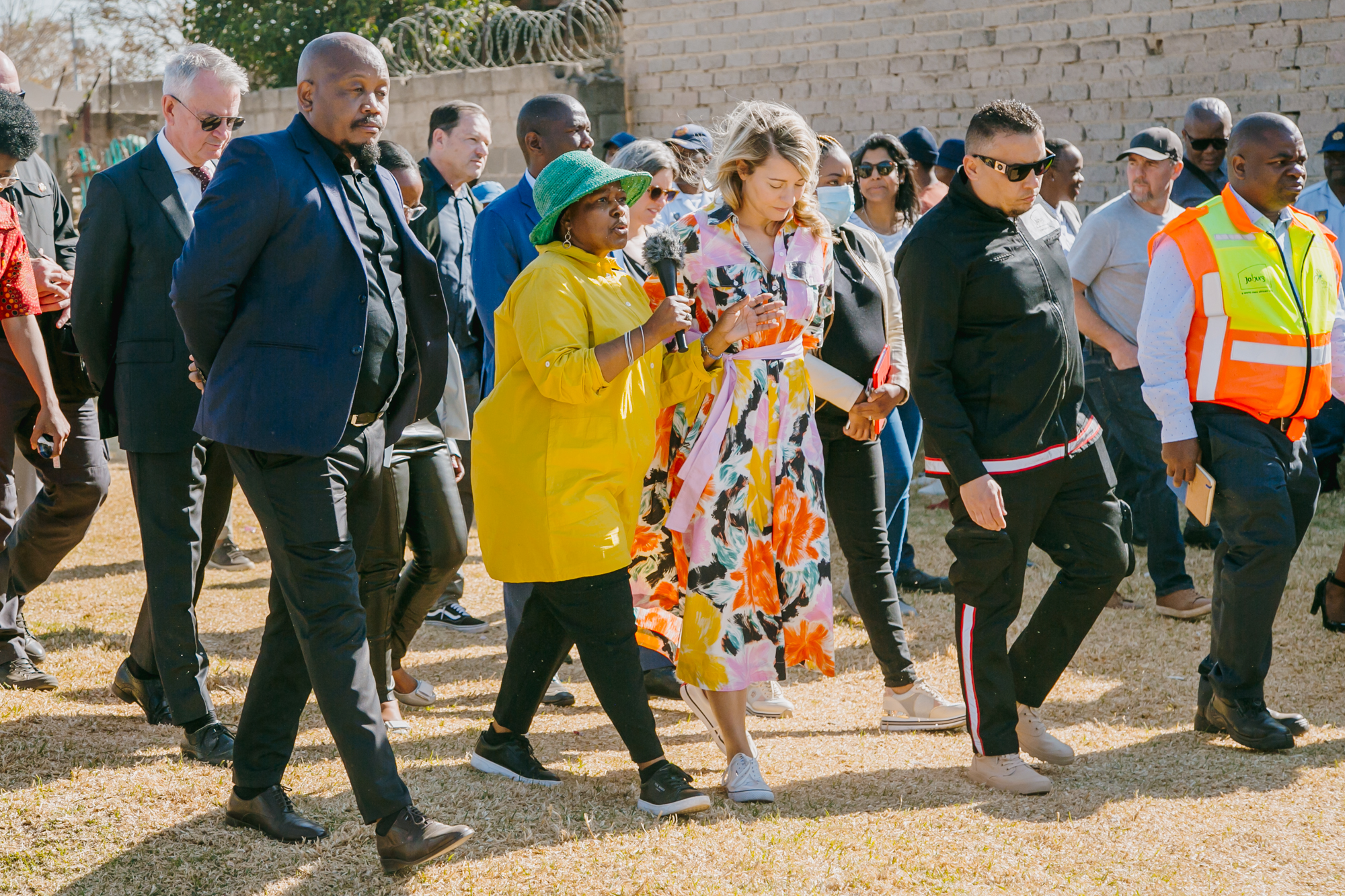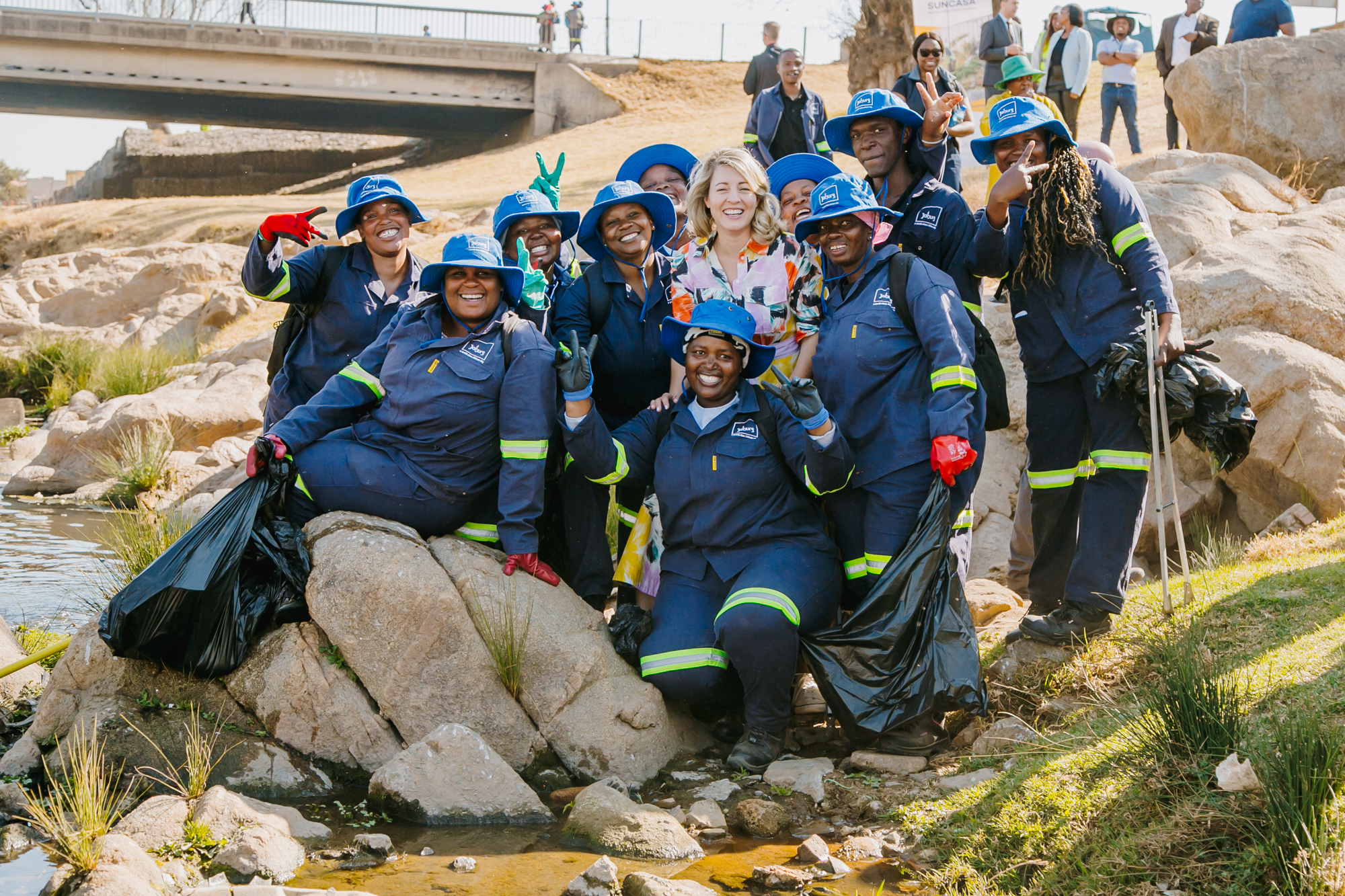
Alexandra Township is a 20-square-block enclave in the heart of Johannesburg, South Africa’s northern suburbs. Established in 1902, the township was built to house 750,000 residents. Today, it is home to more than 1.2 million. Despite efforts to increase waste management, this surge in population growth has left the neighborhood facing high levels of pollution.
The Jukskei River that runs through Alexandra Township is especially polluted with trash, which has made the river — and the houses built on its banks — highly prone to flooding. “The situation calls for urgent, collective action to restore the environment and protect our community from these escalating dangers,” says Semadi Manganye, a local resident and co-founder of the Alexandra Water Warriors.

Manganye’s group has recently become involved in a new initiative, SUNCASA, which stands for “Scaling Urban Nature-based Solutions for Climate Adaptation in sub-Saharan Africa.” Funded through Canada’s Partnering for Climate Initiative and led by WRI and the International Institute for Sustainable Development (IISD), SUNCASA aims to help people living in high-flood-risk areas of three major African cities build resilience through nature-based solutions. Working with the City of Johannesburg and other local partners — including the Johannesburg Inner City Partnership, Johannesburg City Parks and Zoo, Water for the Future, Zutari and GenderCC — SUNCASA aims to introduce more nature into the overcrowded Alexandra Township, helping to reduce flood risks and climate-related impacts like urban heat while also expanding residents’ access to green spaces.
On August 22, 2024, WRI, IISD and local project partners hosted the Canadian Minister of Foreign Affairs, Mélanie Joly, on a visit to a SUNCASA project site along the banks of the Jukskei River. Accompanied by Councillor Jack Sekwaila, a Member of the Mayoral Committee for Environment & Infrastructure Services, and Floyd Brink, Johannesburg’s City Manager, Minister Joly spoke with local community members and SUNCASA’s implementing partners, who shared their visions for improved climate resilience in Johannesburg as well as the latest developments under the SUNCASA project.

Building Green Spaces and Urban Resilience in Johannesburg
Developing and maintaining green spaces in townships in Johannesburg (and South Africa more broadly) has long been a challenge. Townships have a high degree of population density, poor infrastructure and limited access to public services — in part due to Apartheid-era planning, which has made integrating and accessing green infrastructure more difficult for residents of historically underserved neighborhoods.
SUNCASA is working to build accessible green open spaces in low-income communities like Alexandra by integrating more nature into the built environment. Through consultations with local communities, the project will increase tree cover in Alexandra and the inner city by planting trees near low-income households and expanding tree cover in public spaces. SUNCASA is also supporting other “green infrastructure” solutions in the city, including removing invasive species from the Jukskei River Catchment and rehabilitating vulnerable riverbanks with indigenous species.
Together, these nature-based solutions can improve biodiversity, mitigate flood risks and reduce the urban heat island effect, all while helping to build more livable and climate-resilient neighborhoods for disadvantaged communities.
Minister Joly thanked all the partners and communities working on the SUNCASA project, saying “Your leadership, your ideas and hard work are deeply impressive and sure to make the project an impactful one.”

Integrating Nature and Social Equity into Climate Policy
Along with helping implement on-the-ground projects, SUNCASA is working with the local government in Johannesburg to integrate nature-based solutions into its long-term priorities. The project will design and deliver training programs to local partners and authorities on gender-responsive nature-based solutions, helping to enhance governance frameworks on climate adaptation and natural resource management. SUNCASA will also provide municipal authorities with peer-learning opportunities, connecting decision-makers with a network of African policymakers working to improve climate and socioeconomic outcomes in their cities.
Gender equality and social inclusion are central pillars of the SUNCASA project. With limited access to resources and essential services, women and historically marginalized groups are disproportionately affected by climate shocks like flooding. But climate solutions are not always designed with these groups in mind, which means they may not receive an equal share of the benefits. Ignoring gender equality and social inclusion can also perpetuate existing biases and inequities in access, rights and opportunities for local communities.
SUNCASA aims to center the needs of vulnerable groups in all its activities by creating opportunities for women and under-represented groups to participate in planning, implementing and monitoring nature-based solutions. For example, the project works with city governments to open up participatory spaces for policy planning. Tapping into the expertise of partners like GenderCC, the project also works to strengthen the capacity of community-based organizations to partake in decision-making processes so their voices are adequately represented.
SUNCASA is a multi-year initiative that aims to benefit people living in high-flood-risk areas across three major African cities by building their resilience to flooding and other water-related risks through gender-responsive nature-based solutions. Through $22 million in funding from Global Affairs Canada, the project is also being implemented in Dire Dawa, Ethiopia, and Kigali, Rwanda, by IISD and WRI.
This article originally appeared on WRI.org.
Amanda Gcanga is Country Lead for WRI’s Urban Water Resilience initiative in South Africa, and Senior Urban Policy Analyst for WRI Africa’s Thriving Resilient Cities program.
Nikara Mahadeo is Nature-based Solutions Specialist for WRI Africa’s Thriving Resilient Cities program.
Eden Takele is Engagement and Communications Specialist for WRI’s Urban Water Resilience initiative.








